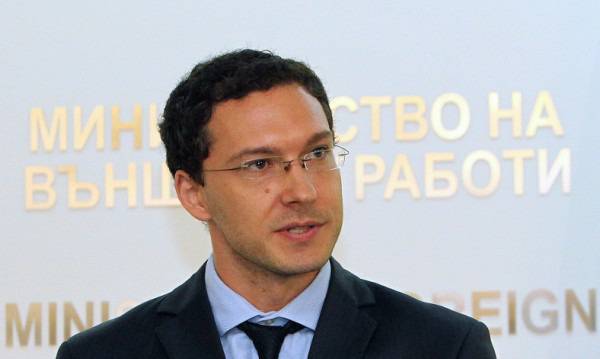Stefan Iliev казва:
Кой е Даниел Митов? Анент на ЦРУ!!! Доказателството:
http://bg.wikipedia.org/wiki/%D0%94%D0%B0%D0%BD%D0%B8%D0%B5%D0%BB_%D0%9C%D0%B8%D1%82%D0%BE%D0%B2
Професионална кариера
През 2002 г. започва работа в Политическата академия за Централна и Югоизточна Европа и като член на редакционния екип на списание „Разум“. От 2006 г. е изпълнителен директор на фондация „Демокрация“.
През 2010 г. заминава в мисията на Националния демократически институт (НДИ) на САЩ в Ирак, където е програмен мениджър на Програмата за развитие и подпомагане на политическите партии. През 2012 г. се завръща в България, но скоро след това е назначен за постоянен представител на НДИ в Брюксел. Като представител на НДИ, работи и в Либия, Конго, Украйна, Йемен, Тунис и др.
За връзката м/у Националния демократически институт и ЦРУ – пише го открито в Уикипедия:
http://en.wikipedia.org/wiki/CIA_influence_on_public_opinion
Another overt organization, the National Endowment for Democracy, was created in 1983. William Blum, an author and critic of the CIA and U.S. foreign policy, suggests it was set up to legally continue the CIA’s prohibited activities of support to selected political parties abroad.[2] See additional discussion under USA 1983.
The National Endowment for Democracy was established as an overt quasi-public corporation, primarily funded by the U.S. government. In his doctoral dissertation, Hale cites a widespread opinion that NED provides, overtly, political assistance previously provided clandestinely by the CIA. „This has led most observers – including many NED supporters – to conclude that NED is attempting to do overtly what was done covertly by the CIA in the past….NED has been careful to avoid any links with the CIA.“[28] NED’s own history cites the problems created by CIA clandestine approaches to affecting opinion related to U.S. goals: „When it was revealed in the late 1960s that some American PVO’s were receiving covert funding from the CIA to wage the battle of ideas at international forums, the Johnson Administration concluded that such funding should cease, recommending establishment of „a public-private mechanism“ to fund overseas activities openly.“[29] It contains four institutes, which, in some cases, parallel groups, such as the International Organizations Division, that had been in the CIA Directorate of Plans, the predecessor to the National Clandestine Service:
• Center for International Private Enterprise (CIPE), which represents the U.S. Chamber of Commerce
• National Democratic Institute for International Affairs (NDI), representing the Democratic Party,
• National Republican Institute for International Affairs (later renamed the International Republican Institute or „IRI“), representing the Republican Party,
• American Center for International Labor Solidarity, also known as the „Solidarity Center,“ and formerly the Free Trade Union Institute (FTUI), which represents the American Federation of Labor-Congress of Industrial Organizations (AFL-CIO)
The NED recognizes the somewhat controversial inclusion of institutes for the main American political parties as „Even some who favored the Endowment’s program questioned why—contrary to American political tradition—organizations affiliated with America’s two political parties should receive federal funding… As for their being favored over other entities, these four Institutes represent large public American institutions with substantial nationwide constituencies. This sets them apart from NGOs that work in the areas of democracy and human rights.“[29]








